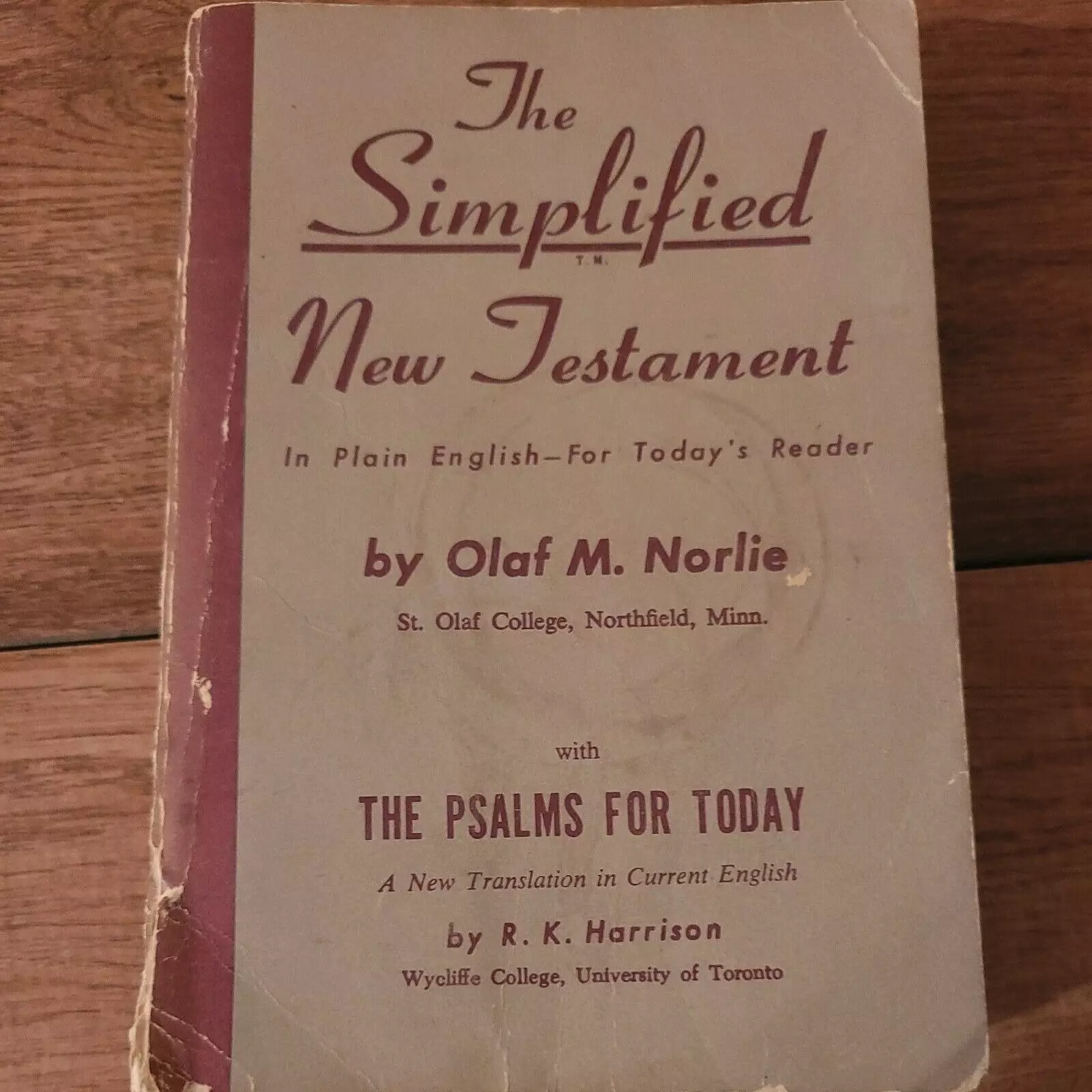It is a translation from the original Greek designed to make the language of the New Testament more interesting and intelligible. The translator was Olaf M. Norlie, a professor having three doctorates and on the staff of a college in Minnesota. Particular attention was given to make this translation readable, while at the same time making it meaningful.
It tries to make use of the simpler words, wherever there is a choice. It shortens the sentences, wherever possible. It omits the solemn style. It capitalizes all the names and pronouns referring to Diety. It retains the versification of the Authorized Bible, without allowing these verse numbers to be obtrusive. It groups the verses according to content, with subject headings supplied for each portion, for convenience in reading and study.
Included with this New Testament is The Psalms for Today, translated by Roland Kenneth Harrison, of the University of Toronto. The translation is an attempt to convey thought-forms and sentiments of the ancient Hebrew Psalmists in a more modern style than is generally found in English versions of The Psalms. This is a retranslation from the Massoretic text. Particular attention was paid to the archaeological discoveries at Ras Shamra (Ugarit), which have thrown considerable light on hitherto obscure expressions and allusions. There were efforts to replace the anthromorphisms, an integral part of earlier translations, with synonymous expressions. An attempt was made to preserve the poetic structure without following the Hebrew rhythmic and parallel forms too closely. The Tetragrammaton is generally rendered the Lord.
Sample Verses
John 1: 1 - 3
The Word was in the beginning; the Word was with God, and the Word was God. He was with God in the beginning. All things were made by Him and nothing that was made came into being without Him.
Comparisons
The following comparative studies include this version:
- Bishops, Overseers, Presbyters, and Elders
- Commandments or Clean Robes?
- Entering His Rest
- God So Loved the World
- Hebrew Poetry in the Bible
- Jude's Advice About Saving People
- Let No Man Judge You
- Lord Is My Shepherd: An Anthology
- Lord's Day in the Book of Revelation
- Passover and the Days of Unleavened Bread
- Reference to the Trinity
- Sabbaths and Sundown
- Scripture Inspired by God
- Those Who Work Iniquity
- Words with Heathen Origins in the Scriptures
| Abbreviation: | NSNT |
| Released: | 1961 |
| Contents: | Psalms, New Testament |
| Source Used: | Zondervan (1961) |
| Location: | Tyndale House, Cambridge, United Kingdom |
